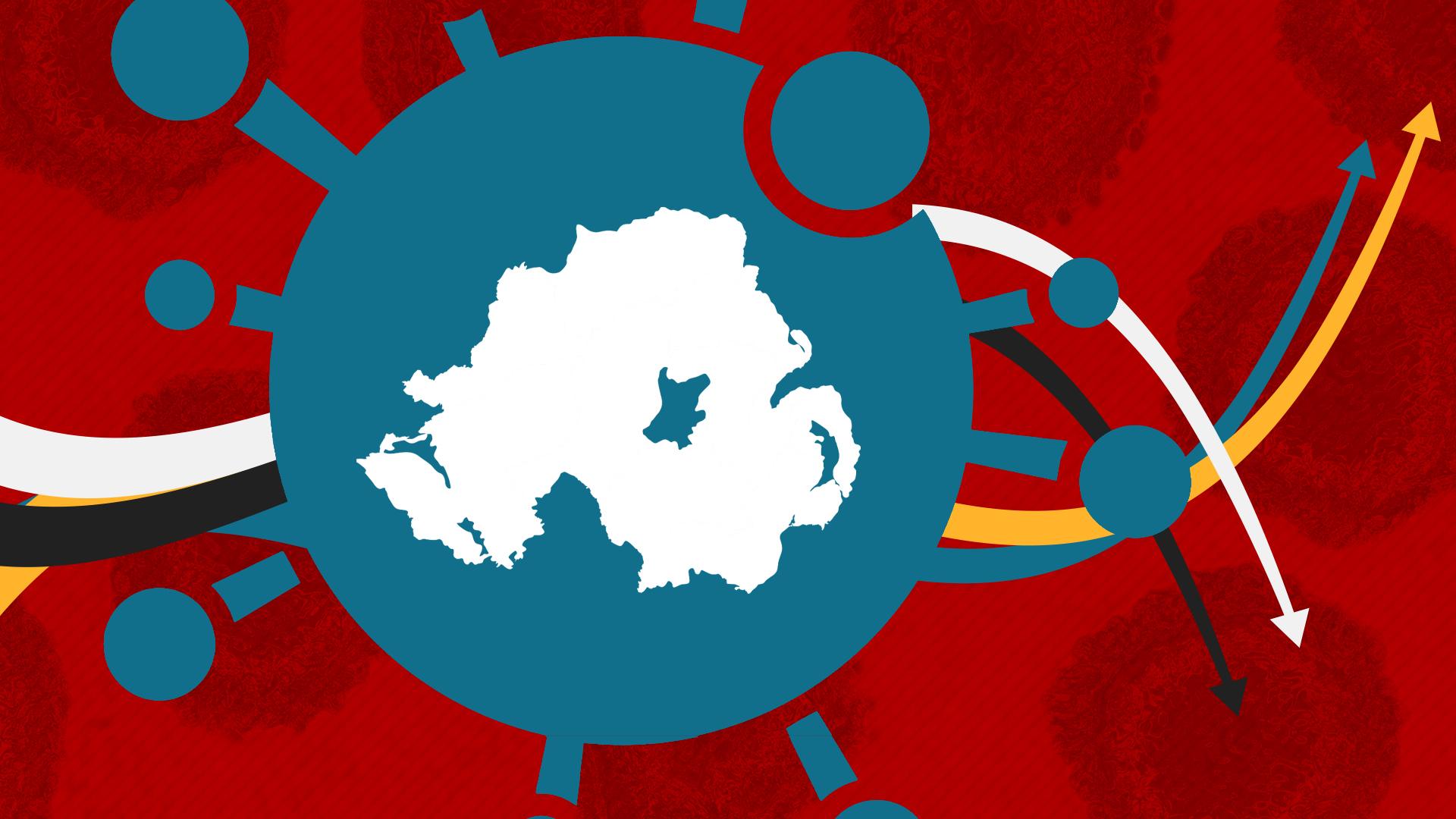Coronavirus in NI: Six months of heartbreak and loss
- Published
'I'm constantly defending how mummy died'
It is six months since the first death of someone in Northern Ireland who had tested positive for Covid-19.
Since then the total recorded by the Department of Health has risen to 573, as of Wednesday.
BBC News NI spoke to three people whose lives have been affected by the virus.
'Rollercoaster of emotions'
Having buried her brother and father, Brenda Doherty knows what it is like to grieve.
While she still misses and mourns them, Brenda says losing her mum Ruth to Covid-19 in March was very different. The 82-year-old was among the first to die in Northern Ireland with the virus.
Brenda says: "My sons and my brothers - they so much wanted to give mummy the same send-off that they'd given my dad, they wanted to carry her coffin.
"I would have done a eulogy for my mum telling all her stories. I will do that at the memorial but it won't be the same because she won't be in front of me in her coffin."
Like so many other families they didn't get to sit at her hospital bedside or provide a wake and proper funeral service.
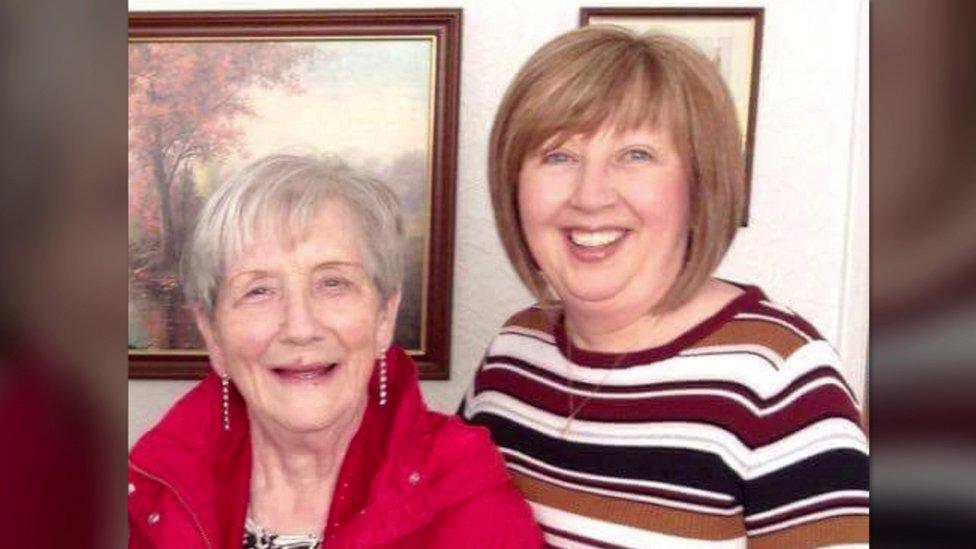
Brenda Doherty said her mother Ruth was a strong woman
"We didn't say goodbye to my mum. We didn't see mum leaving the family home for the last time in her coffin. Or mum being put in the grave before Jennifer and I could stand at the graveside," Brenda says.
"We didn't get to touch mummy's coffin, let alone see her in it.
"That has impacted on the grief the same way that it has done for so many families.
"There were 12 hours from when we got the phone call to say she was dying and mummy's passing, I do relive them and I still ask questions - did she really understand why we all weren't there?"
Brenda says she struggles with how some people talk to her about Covid.
"I am constantly defending my mummy dying. I get asked, 'are you sure it was Covid?'" she says.
"No-one ever asked me if I was sure dad died from cancer. They ask if she had underlying health conditions as though it then makes it alright.
"So all that impacts on my anger. It's all a rollercoaster of emotions. "
The family are currently clearing their family home. There are boxes and boxes of memories.
On top of one particular box is a hospital bag of personal possessions.
Brenda says they have yet to open it as it is just too painful.
"Inside is the necklace that mum wore in hospital. Everything else was destroyed because of Covid, but we asked them to save it," she says.
"It's the last thing which touched mum. That is precious."
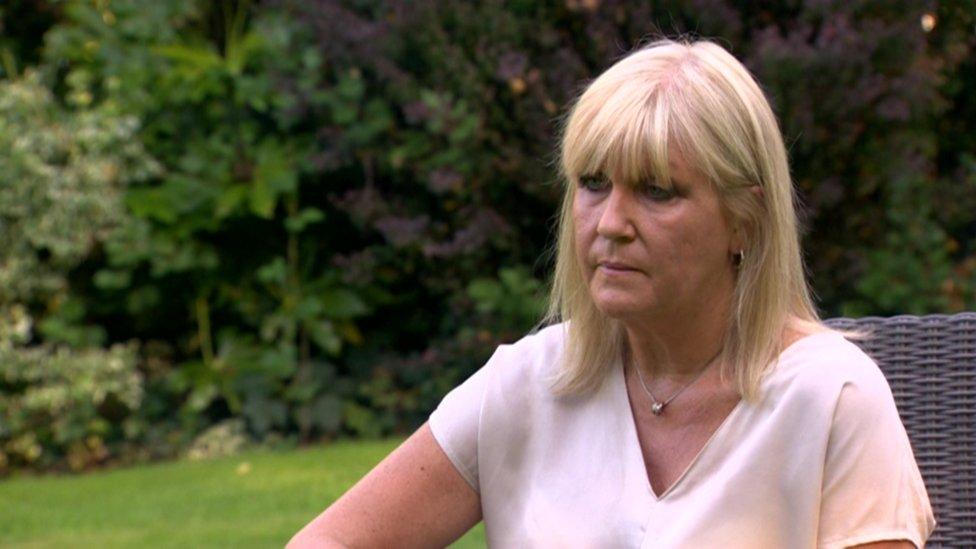
Prof Nichola Rooney has been working to help build up bereavement services
'This has had a devastating impact'
Prof Nichola Rooney is making her way through the pandemic wearing two hats - one as a mother of three children and the other as a clinical psychologist trying to offer advice and help make sense of it all.
"Grieving is a normal process but Covid has made it worse, because it means it's all happening in abnormal circumstances," Prof Rooney says.
She is part of a Department of Health team building up bereavement services.
"We know there is already greater demand for bereavement support and that need will grow," she says.
"Some people who have buried loved ones during lockdown can't believe it has happened.
"The body not being at home, the lack of funeral, that feeling of being isolated.
"All of this has had a devastating impact. The normal traditions in Northern Ireland help, the wake, the walking behind the coffin, the funeral service, that all helps but for many families that hasn't been there."
According to Prof Rooney the Department of Health is putting resources in place to provide bereavement support.
She does not want to see people being handed out prescriptions for anti-depressants.
"I think all this will extend the grieving process and will extend the feelings of anger and loss," she says.
"Potentially there will be a huge impact on people's mental health. It is vital that grieving should not be confused with a mental illness - the two are completely separate."
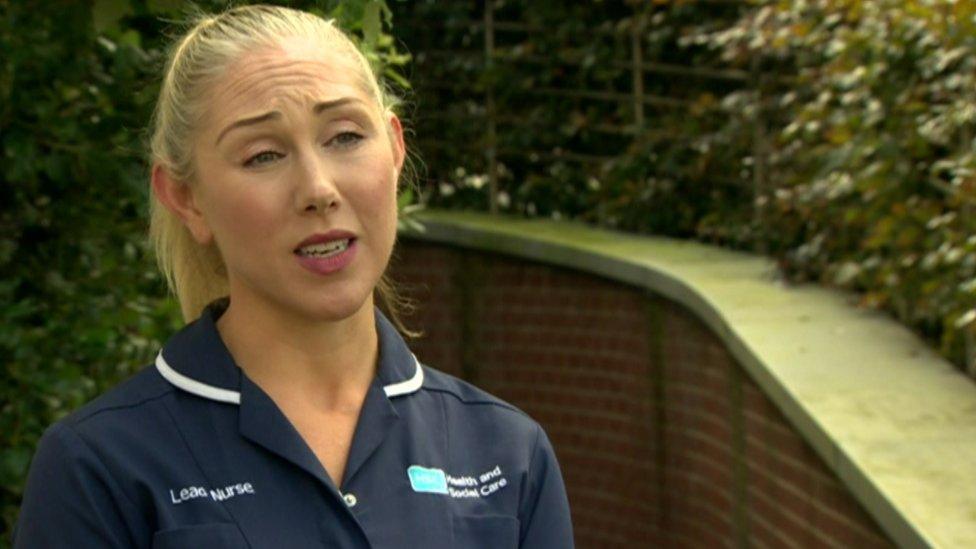
Maire McAnaney worked through the height of the pandemic
'Our roles completely changed'
Nurse Maire McAnaney says the six months since the first death have gone by in a flash.
Back then nurses were transforming the wards into areas suitable to fight Covid.
"We were prepared, we were ready for the virus and we worked hard," she says.
Nurses are used to dealing with death, but Maire says she experienced a different type of loss during the first wave of coronavirus.
"A lot of our roles completely changed and that was a big loss," she says.
"We came into work every morning and had a different job to do and had different priorities.
"We were working with different colleagues from different hospitals. That familiarity had gone.
"It was amazing and challenging to create a new team, but I missed the old one too.
"It was difficult and hard to deal with on top of everything else."
- Published24 March 2020
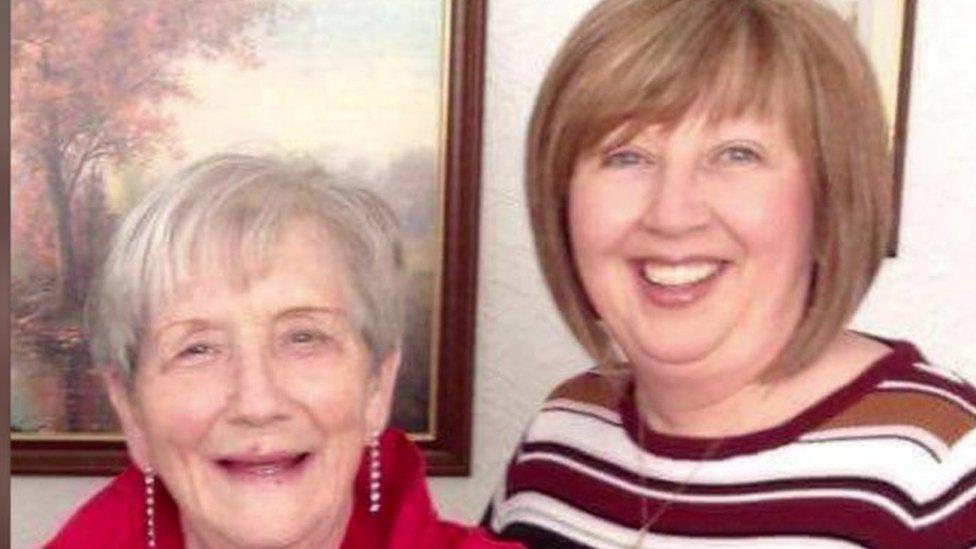
- Published30 August 2020
